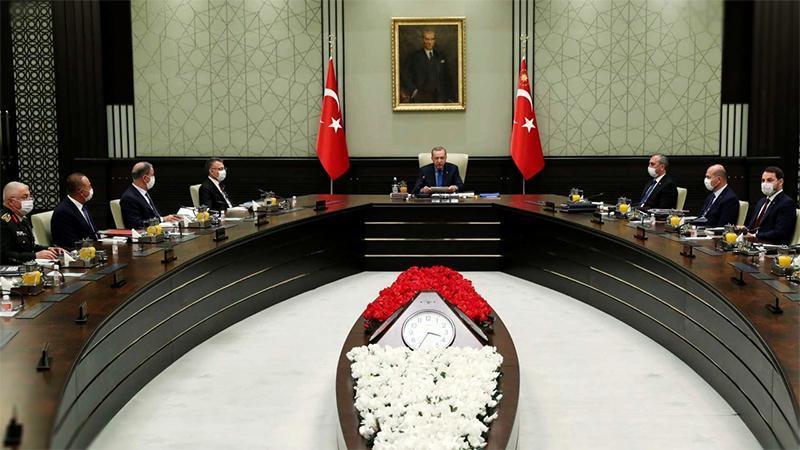
Turkey will continue to stand by people of Libya against all kinds of tyranny, according to a National Security Council statement on July 22.
Libya has been torn by civil war since the ouster of late ruler Muammar Gaddafi in 2011.
The country's new government was founded in 2015 under a U.N.-led agreement, but efforts for a long-term political settlement failed due to toa military offensive by warlord Khalifa Haftar's forces, backed by Egypt and the UAE.
Libya's legitimate government has been under attack by Haftar’s forces since last April, and more than 1,000 people have been killed in the violence.
The U.N. recognizes the Libyan government headed by Fayez al-Sarraj as the country's legitimate authority as Tripoli battles Haftar's militias.
The government launched Operation Peace Storm against Haftar in March to counter attacks on the capital Tripoli, and liberated strategic locations, including the Al-Watiya airbase and city of Tarhuna.
Haftar has the support of the UAE, Egypt, and Russia while the U.N.-recognized government is backed by Turkey.
Turkey also reiterated its support to Azerbaijan against Armenian border attacks, according to the statement.
Turkey called on Armenia to stop its aggression and withdraw from Azerbaijani lands it is occupying, the statement said following the council meeting headed by President Recep Tayyip Erdoğan in the Turkish capital Ankara.
Ankara also strongly condemned the Armenian occupation of Azerbaijani territory, the statement added.
On July 12, the Armenian army violated a cease-fire and attacked Azerbaijani positions with artillery fire towards the Tovuz border district, withdrawing after losses following retaliation from the Azerbaijani army.
During its aggression, Armenia killed 12 Azerbaijani soldiers, including high-ranking officers, and one civilian, besides wounding four troops.
Since 1991, the Armenian military has illegally occupied the Upper Karabakh (Nagorno-Karabakh) region, an internationally recognized territory of Azerbaijan.
On the long-divided Mediterranean island of Cyprus, the council said Turkey will not allow any attempt that could harm peace and stability on Cyprus.
Last May, Turkish-flagged drillships began offshore drilling operations in areas off the island of Cyprus. The areas fall entirely within the Turkish continental shelf registered with the U.N. and in permit licenses, the Turkish government in previous years granted to Turkish Petroleum Corporation, the country's national oil company.
Turkey sees energy as an incentive for political resolution on the island and peace in the wider Mediterranean basin, not a catalyst for further tensions.
Turkey is a guarantor nation for the Turkish Republic of Northern Cyprus (TRNC) and has consistently contested the Greek Cypriot administration's unilateral drilling in the Eastern Mediterranean, asserting that the TRNC also has rights to the resources in the area.
In 1974, following a coup aimed at the annexation of Cyprus by Greece and amid ethnic violence against Turkish Cypriots, Ankara had to intervene as a guarantor power. In 1983, the TRNC was founded.
The decades since have seen several attempts to resolve the Cyprus dispute, all ending in failure. The latest, held with the participation of the guarantor countries- Turkey, Greece, and the U.K.- came to an end without any progress in 2017 in Switzerland.